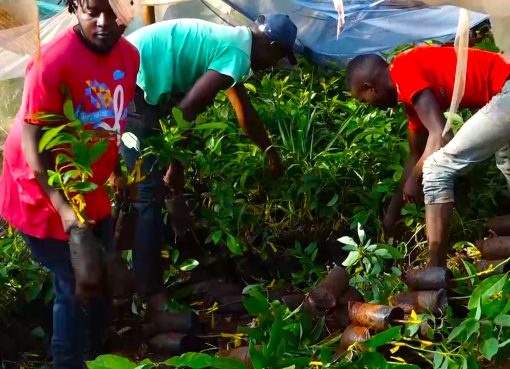Over 173, 000 farmers have signed up for livestock insurance to cushion them against drought related losses.
Through the World Bank funded project dubbed De-risking Inclusion and Value Enhancement of Pastoral Economies (DRIVE), some 600,000 animals have so far been covered.
State Department for Livestock Development Principal Secretary (PS) Jonathan Mueke said the growing interest in the programme stems from the recent drought where 2.5 million head of livestock worth billions of shillings was lost.
The PS said the livestock cover, a partnership between the Department of Livestock Production, the World Bank (WB), Kenya Development Corporation and Zep-Re targets 21 counties.
The cover, he added, seeks to strengthen support for pastoralists and livestock farmers through access to rapid cash when there is drought.
Farmers, he said, will be able to make claims to purchase feeds during drought to keep the animals alive and healthy.
“This is a very vibrant programme. We are not insuring animals upon death. The idea is to keep the animals alive to cushion farmers against losses,” he said.
The initiative which was rolled out in July this year targets Turkana, Marsabit, Mandera, Wajir, Garissa, Tana River, Isiolo, Samburu, Meru, Tharaka Nithi, Baringo, West Pokot, Narok, Laikipia, Kajiado, Makueni, Kitui, Lamu, Taita Taveta, Kilifi and Kwale counties.
Speaking in Kisumu during a Kenya Livestock Commercialisation Project (KeLCO) workshop, Mueke said the government was on course to boost livestock production in the country.
The five-year project funded by the International Fund for Agricultural Development (IFAD) to the tune of Sh 9 billion, he said targets to boost food security and increase incomes for 110, 000 poor livestock and pastoralist households.
So far, he said the project framework has been developed and four value chains identified in the ten counties.
“We are now at the implementation stage of the project and the value chains we have identified resonate well with Bottom-up Economic Transformation Agenda (BETA),” he said.
Focus, he said, was on rearing of small ruminants (sheep and goats) for meat and milk production, local improved poultry, bee keeping and rabbit production.
The value chains which do not require a lot of space and capital to start, he added, are set to provide employment and food security for youths, women and people with disability (PWD’s).
The State Department, he said, would engage with value chain drivers in the public and private sector to ensure that the project succeeds.
The meeting was attended by County Executive Committee Members (CECM’s) from Nakuru, Trans Nzoia, Siaya, Kakamega, Bungoma, Busia, Marsabit, Samburu, baringo and Elgeyo Marakwet where the project is being implemented.
“We came here to align ourselves with the CECM’s in the ten counties so that we are on the same page as we implement this project,” he said.
Nandi CECM in charge of Agriculture Dr Kiplimo Lagat lauded the project saying smallholder livestock farmers were set to benefit immensely.
“We have been able to iron out some of the outstanding issues and define the roles of counties and the national government in the implementation of this project,” he said.
By Chris Mahandara





